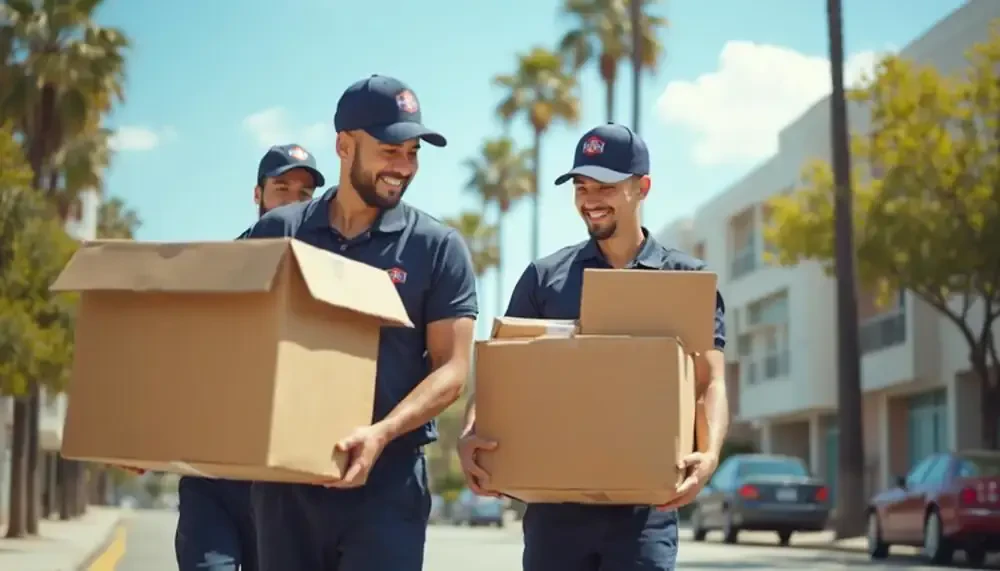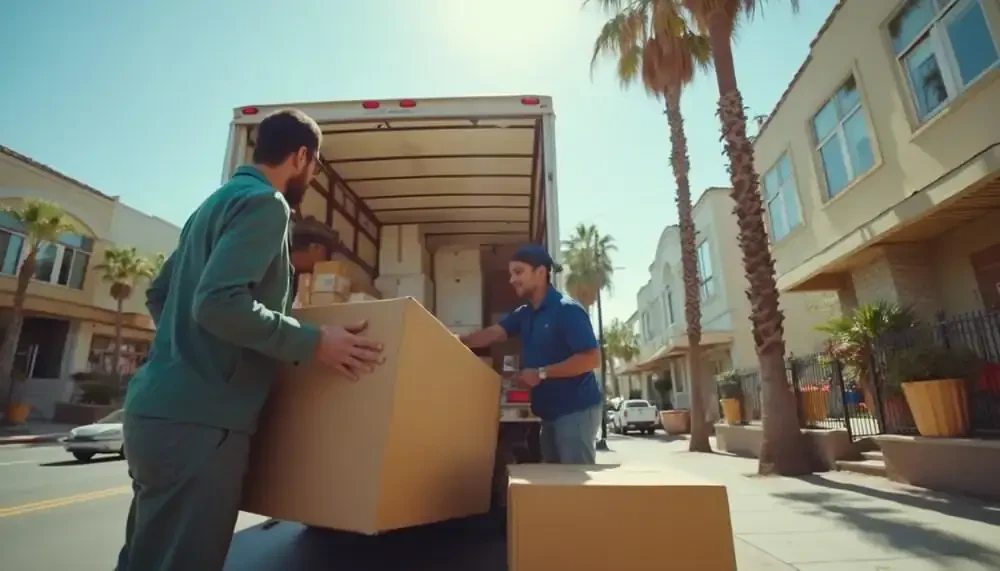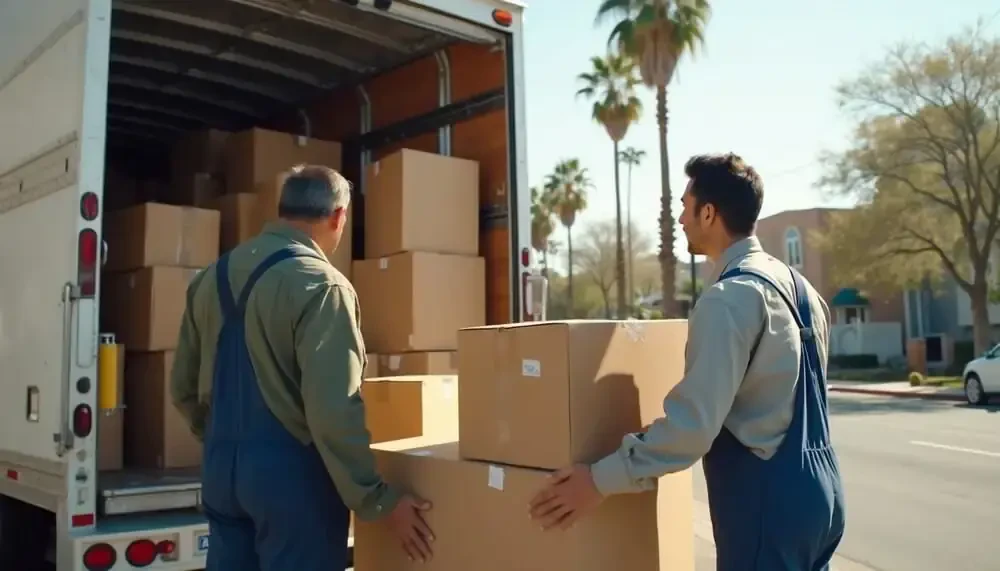Published by Chris Townsend
Last updated Dec, 01 2025

24-Hour Moving Companies In Los Angeles
People say New York is the city that never sleeps, but we get things done at all hours in Los Angeles. If you want something to happen overnight, you can find someone to do it. Finding a 24-hour mover is no more difficult than finding an all-night pharmacy. Whether you need to move in the middle of the night or just move right away, you can find the right same-day moving company for the project.

How Do I Find A Hauler In Los Angeles?
Moving companies come in many sizes, but typically they are small businesses. Whether the mover is an independent business, an agent for a national van line, or a franchisee, most have fewer than ten employees and work hard to offer various services to their customers. Being available as much as possible is one of those services. Round-the-clock service makes sense for a world where nothing closes. Los Angeles movers may also offer full-service moves, white-glove service, and small moves for those looking for more affordable options. Some companies specialize in local projects, while others prefer the long-distance, interstate market. If you engage a company affiliated with a national chain, it will have access to a warehouse for storage when needed.
Choosing a mover isn’t just about finding one that can offer service when needed. Finding a good company that will provide honest assistance when required is more important. Most hauling companies are reputable and reliable, but some shady operators are out there, and you want to avoid them.

How Do I Spot A Fly-by-night Relocating Company?
Here are some red flags to watch out for when considering moving companies:
On-site inspection.
If the mover doesn’t want to do the required visual survey of your household goods, this is a sign that the company might not be honest. The survey is the best way for the company to determine how much the shipment will weigh, so skipping it usually results in an inaccurate quote.
Low-ball estimate
If the estimate seems too good to be true, it probably is. The mover may be planning to hijack your shipment and disappear or demand a much higher payment in exchange for delivery.
Cash deposit
Usually, the consumer pays for relocating services when the shipment is delivered, and most legitimate shifting companies accept credit cards. If a company requests cash only or a large deposit, be wary.

Blank documents.
If a moving vendor asks you to sign a blank estimate or inventory and tells you they will finish filling it in later, don’t do it. They can put anything they want above your signature, and you legally agree to it. If the contract has blanks, strike through them before you sign.
The mover is not registered with FMCSA or BHGS.
Movers are regulated either by the Federal Motor Carrier Safety Administration (if they perform cross-country moves) or the California Bureau of Household Goods and Services if they operate just within the State. They will have a license number from whichever entity they are governed by and should offer it to you when asked. You can check the status of a mover by going to the website.

Company office
If the moving company doesn’t have a local office, it might be a front for a boiler-room operation setting up a scam. Similarly, a P.O. Box or residential address instead of an office is suspicious. If you call the office number, and instead of someone answering with the company's name, they use a generic greeting like “movers” or “moving company,” they may be unscrupulous.
These are signs that something isn’t right, and you should move on to another potential vendor.
Get A Quote To Move
Contact an agent by filling out the fast quote form and get your next move started today!

How Much Does It Cost?
The cost of a move depends on many factors. The two most significant elements are the shipment size and the distance. You will pay for a local move (usually defined as a job under 50 miles) by the time it will take to complete the work. The movers will come to your house or apartment, examine what you want to move, and provide you with a price. If you have a lot of heavy furniture and other things, it will cost more than a minimalist with smaller, lighter belongings. The regulations in California require that the quote take the form of a “not-to-exceed” amount. If the mover charges more due to the time of day or the immediate nature of the service, they will indicate the premium in the price offered. You may have to meet a minimum charge if you have a small move.
If your move is from Los Angeles to another state, it falls under the jurisdiction of FMCSA instead, and the mover can give you either a binding or a nonbinding quote. A binding quote is like a not-to-exceed price, but a nonbinding quote can increase if the weighted forecast is inaccurate. Long-distance move rates are typically based on the shipment’s weight and distance traveled. The average interstate household goods move in the U.S. (about 7500 pounds shipped 1250 miles) cost $4300 in 2019.
Some things that can increase the cost of a local or long-distance move are extra services like packing. If you want the movers to pack your possessions, they will charge an hourly rate. Moving isn’t cheap, but you can make it more affordable if you do the packing. You can use clothing and linens as dish packing material instead of buying bubble wrap and packing paper. Packing is also an excellent opportunity to organize and declutter. If you discard, donate, or give away things you no longer need, you can reduce your shipment size and lower the cost.
If your sudden move means sending your household goods into storage, prepare for the cost of that service. Temporary storage is generally available from the movers and packers directly or through their affiliated relationships, so ask about any discounts. The length of storage you have planned will influence the cost and the type that is your best choice, but it’s not always possible to know in advance what you will need. Remember that if you send your goods to storage, you will be paying for labor again to load them back into a truck when you are ready for delivery.

Do I Need Insurance For This Move?
Moving insurance is correctly referred to as valuation or liability coverage, and consumer advocates and experts usually recommend that you pay for the higher level that your mover offers, not just take the rudimentary coverage at no charge. The reason is that the basic protection is strictly limited. It’s hard to think of anything that you can successfully repair or replace for 60 cents per pound unless it is a used paperback or a coffee cup.
If you have belongings you care enough to move, they are doubtless valued at more than 60 cents a pound. If anything is lost or broken, you will be left without recourse unless you obtain the higher coverage the mover can offer you for a fee. There are two choices in California’s intrastate moves; for interstate shipments, there is one higher-level choice. As with other types of insurance, hopefully, you won’t need it, but you are happy you have it when you do need it.

Frequently Asked Questions
Most 24 hour movers can arrive within 1–3 hours, especially when handled by experienced teams that also provide same day movers in Los Angeles services. Arrival times depend on crew availability, traffic on the 405 or 101, and your proximity to the nearest dispatch point. Factors such as move size, building access rules, elevator availability, and last-minute packing needs also influence how quickly a crew can reach you.
Yes, overnight crews can complete full or partial packing, including fragile items and kitchen contents. For customers needing complete preparation before a late-night load, a professional packing and unpacking service can streamline the process. Packing times vary based on inventory, the number of movers scheduled, and any building restrictions on nighttime elevator or loading-dock access.
Booking 24–48 hours ahead ensures better access to trucks, crews, and preferred time windows. Same-day or night-of bookings may still be available for smaller moves, but large homes, packing-intensive jobs, or buildings with limited elevator windows often require more lead time.
Yes, many providers handle small loads, including appliances, boxed items, and quick apartment transfers. These jobs typically require 1–2 movers and take 1–3 hours, depending on stair access, parking conditions, and any required disassembly.
After-hours moves may include night surcharges, overtime labor, or premium rates for start times between 10 pm and 6 am. Price adjustments often relate to labor availability, loading-zone restrictions, and long-carry distances common in dense LA neighborhoods. Reviewing detailed moving prices helps clarify how these after-hours factors affect total cost.
Some buildings approve overnight moves with advance notice, while others restrict work during quiet hours. Expect possible requirements such as freight elevator reservations, limited dock access, noise rules, and security check-ins. These influence crew size, loading times, and how many trips movers can complete during nighttime windows.


